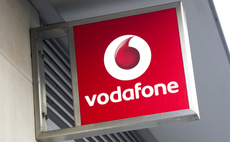Operators could speed-up 4G rollout but will still compete with each other
Vodafone and Telefónica UK (O2) have announced plans to merge the basic parts of their network infrastructure to establish one national grid that will be used to run each operator's independent spe...
To continue reading this article...
Join Computing
- Unlimited access to real-time news, analysis and opinion from the technology industry
- Receive important and breaking news in our daily newsletter
- Be the first to hear about our events and awards programmes
- Join live member only interviews with IT leaders at the ‘IT Lounge’; your chance to ask your burning tech questions and have them answered
- Access to the Computing Delta hub providing market intelligence and research
- Receive our members-only newsletter with exclusive opinion pieces from senior IT Leaders





















